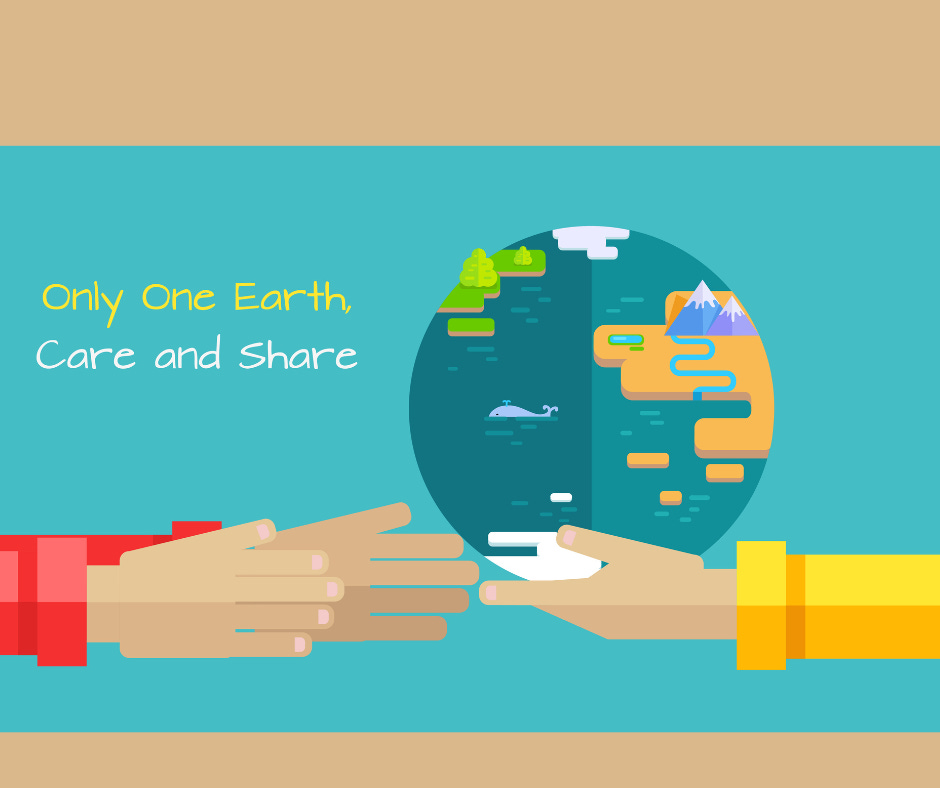In today's world, where sustainability and social justice are at the forefront of many conversations, two philosophies, resourceism, and veganism, are gaining traction for their unique approaches to these critical issues. While veganism is traditionally known for promoting a plant-based lifestyle to reduce animal suffering and environmental impact, resourceism takes a broader perspective, advocating for a systemic shift towards a resource-based economy.
It's worth noting that the term "resourceism" was coined in September 2021 by Michael Corthell, a vegan educator and activist who became involved with The Venus Project. Through this experience, he came to a crucial realization: creating a global resource-based economy is fundamentally linked to the widespread belief in the ethical principle of sharing Earth's resources equally.
‘‘While veganism focuses on reducing animal suffering through plant-based living, resourceism takes a broader approach, advocating for a systemic shift towards a shared and equitable distribution of Earth's resources. This shared foundation of ethical and environmental responsibility makes resourceism the philosophical underpinning of veganism's core beliefs.’’
This article explores the interconnectedness of resourceism and veganism, highlighting how resourceism, with its core value of equitable resource sharing, serves as the foundation for veganism's ethical and environmental stance.
Shared Ethical Ground
Veganism: Minimizes animal suffering by promoting a lifestyle that avoids animal exploitation.
Resourceism: Broadens this ethical framework to encompass the fair and equitable distribution of Earth's resources among all inhabitants, advocating for shared stewardship that benefits humanity as a whole. This expands the ethical scope beyond animal treatment, framing the human relationship with natural resources within a moral imperative of equity and compassion.
Environmental Alignment
Veganism: Highlights the harmful impacts of animal agriculture on the planet, such as deforestation, water pollution, and greenhouse gas emissions.
Resourceism: Builds on these concerns, advocating for a holistic approach to managing the planet's resources. This includes focusing on sustainability, renewable energy, and minimizing our environmental footprint, ultimately protecting ecosystems for future generations. The alignment of both movements on environmental stewardship underscores a unified approach to preserving our planet, emphasizing the need for both sustainable resource use and dietary changes.
Social Justice Connection
Veganism: Intersects with broader social justice issues, promoting ethical consumption that considers human and animal rights.
Resourceism: Naturally extends to social justice, aiming to eradicate systemic inequalities and ensure fair access to resources for all. This reflects the ideology's roots in the ethics of sharing and broadens the scope of social justice beyond animal welfare. Together, these philosophies advocate for a just society where access to food, health, and well-being is not a privilege, but a basic right shared by everyone.
What is a Resource-Based Socio-Economic System?
A Holistic Approach
Both veganism and resourceism: Employ a holistic perspective in addressing global challenges, recognizing the interconnectedness of human, animal, and environmental well-being.
Resourceism: Informed by vegan principles and the ethical imperative for sharing, encompasses a comprehensive view of societal transformation that integrates dietary choices, responsible resource management, and systemic change. This integrated approach is crucial for tackling complex global issues, offering solutions that consider ecological balance, ethical values, and social equity.
Conclusion:
The connection between resourceism and veganism goes beyond mere coincidence. They share a common vision for a sustainable, equitable, and compassionate world. The emergence of resourceism, driven by a vegan activist's commitment to ethical sharing, presents a foundational philosophy that encapsulates and expands upon the core values of veganism. As we navigate the pressing challenges of our time, the combined force of these ideologies offers a promising vision for systemic change, where the principles of equitable resource distribution and ethical considerations guide us toward a future of harmonious coexistence with all inhabitants of Earth.
Sources:
Compassionate Systems: https://systemsawareness.org/compassionate-systems/
This organization promotes a systemic approach to ending animal exploitation, aligning with the holistic perspective of resourceism and veganism.The Future of Food Institute: https://futurefoodinstitute.org/
Resourceism: https://www.resourceism.com/
The Venus Project: https://www.thevenusproject.com/
Sources:
From the Outside In: Veganism, Identity Communication, and Resisting Carnism
Nibert, David. Animal Oppression and Human Violence: Domesecration, Capitalism, and Global Conflict. Columbia University Press, 2013.
Visit Our Amazon Store!
All sales of our Vegan Products help animal rights worldwide!
General Resources
Books:
Dominion: The Power of Animals in Nature and in Our Imagination by Matthew Scully
Animal Liberation by Peter Singer
Eating Animals by Jonathan Safran Foer
A Billion Hungry Mouths: Feeding the World Without Consuming the Planet by Colin Tudge
Websites and organizations:
Documentaries:
Academic articles:
"The Case for Animal Rights" by Tom Regan
‘‘Why We Love Dogs, Eat Pigs, and Wear Cows: An Introduction to Carnism’’ by Melanie Joy
‘‘Animal Rights: The Abolitionist Approach’’ by Gary L. Francione
‘‘Fellow Creatures: Our Obligations to the Other Animals’’ by Christine Korsgaard
Receive a single informative article daily at 12:01 AM by email. For additional updates, explore my homepage with exciting vegan and plant-based news content and delightful and delicious recipes. Stay connected to the vegan world and all it has to offer.
Visit The Vegan Project Global our Facebook page for more vegan outreach and education.
Also, visit our new YouTube channel
The information on this vegan/plant-based blog is for general informational purposes only. It is not intended as legal, medical, or professional advice. Readers should consult with appropriate professionals for specific advice tailored to their situation. The blog owner is not responsible for any reliance on the information herein.





